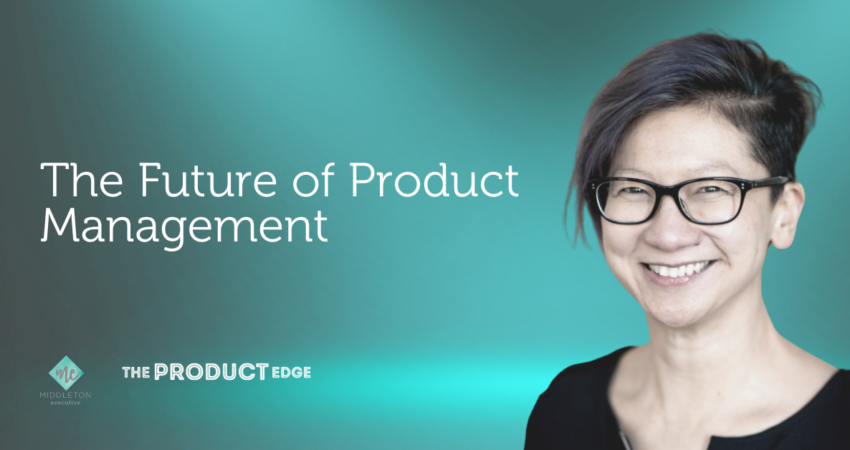In the midst of a global pandemic, Jade Bennett caught up with Adrienne Tan, Co-founder and CEO of Brainmates on her podcast for product folk.
Many in our network would know Adrienne is an absolute Product superstar, arguably there is no better person to be joining the conversation on the future of product management with.
Here’s some of what she had to say during this episode about the future of Product…
Jade: You’ve been working in Product for around 20 years and founded Brainmates, a product consulting and training company. Describe the state of product management in Australia right now.
Adrienne: Well, we’re in an unusual time. We’re in the middle of a health crisis. So what was once a very buoyant product market, is now slightly tampered. Although things have started to change, where companies are now realising that this might be the ‘new normal’ and are required to continue with their product development efforts.
Over the last 20 years, product has changed significantly… enormously. Because I think in the first 10 years, most people spoke to me about project management, and it was a very difficult conversation every time I spoke to someone about product management. And trying to explain to someone that we were the folks who spend a lot of time trying to identify customer value, and bringing that customer value to life was a very hard concept for organisations and people to understand. And I think because there’s been such a change; proliferation in tech companies, technologies so much part of the fabric of our lives, that products are brought to market faster. And the people who do all of that are the Product Managers. We need somebody there to nurture the process, to nurture the thinking, and to nurture the product in-market.
Jade: With product changing the landscape changing so much over the last 20 years, and especially the last 10 years, do you think product management is somewhat at the mercy of the economy?
Adrienne: I personally don’t think so. I think there might be a blip at the moment, but I think they’re the very fabric of the economy. I think that if you really extract what Product Managers do – we talk a lot about creating products or value, creating delightful experiences – all of that contributes to the economic growth of a nation. That’ll still have to continue, irrespective of whether the economy is feeling slightly depressed at the moment, or not.
In fact, I would argue that you’d want to, as an organisation, consider investing more in product than you would trying to reduce your cost in product because you’re actually stopping the very engine of your business. If you remove the investment of product from your business, you’re not allowing your business to grow if you don’t have product people in there.
When we went into lockdown on the 16th of March, it was a very traumatic time for the whole company. We’re a small business, but we had interviewed a CPO for our business and he started when we were in lockdown. As a small organisation, we could have said we’ve taken a huge impact in our revenue and we should postpone the investment of new products that we were considering bringing to market. But that would be folly, even for such a small company like us. It would be folly to think that way. So we instead said, no, we’re doubling down, and we’re definitely investing even in this really difficult time to build new products. Because if we don’t, then the chances of our long term survival dissipates.
Jade: It does seem like Product has been impacted a bit more than perhaps other departments and areas such as Development. I’ve spoken to a lot of Product Managers and product folk that have unfortunately been made redundant, or lost their roles during COVID – perhaps more so than other areas. Have you seen that trend?
Adrienne: I have seen that Product Managers have lost their jobs, and I’m certainly not of the opinion that that’s a good path to go down. But then I look at the other, and I know Developers haven’t been affected as much, but other departments, like Marketing and Sales, have been affected.
I think it’s an initial reaction, that people do become nervous and they want to keep as much cash in their business as possible, for as long as possible. So they will take sometimes silly steps to manage their fees (potentially) and their cash flow, and will start to cut costs, which they don’t think add to the growth of their business. I think that’s a bit sad when it comes to Product people, because I think they’re the very engine of your business.
Jade: The growth engine, so to speak! Australia has enjoyed an economic bubble for years now, and that’s well and truly burst. I think that’s safe to say locally and globally, with COVID. What do you think the Product landscape looks like when we come out of this on the other side?
Adrienne: I’m not sure whether we’ll come out of it on the other side. I think we’ll live through it and… there’ll be no side… potentially a different way of life. What I’m seeing right now is that there are a lot of demands for more technical skills in Product people. People are looking for Product Managers with experience in platform development, customer relationship management databases, artificial intelligence, mobile. So there could be a trend to having more tech folk join the Product ranks. I do a lot of work in the travel industry and, of course, the travel industry has been somewhat decimated globally, and what I see there is that there are still Product folk in places like Flight Centre. They are still sticking by a department that helps them consider, innovate, develop new products.
Jade: Absolutely. And one of the things that I’ve noticed with Product companies is the proliferation of the CPO role in business, and having that C-suite position as companies are increasingly looking at the technical experimental and the commercial aspects, and the CPO role is increasingly, uniquely suited to that position. Do you see that changing and, continuing in that direction; that there will be more demand for CPO and the voice at the table at that C level?
Adrienne: Absolutely. I don’t see that diminishing whatsoever.
In fact, I see a lot more of it… I enjoy watching these wonderful startups that, once the founder has established herself or himself, is trading and making sales, that they are bringing on board Chief Product Officers, giving them a voice at the table. And as they grow, and you can see that in the Safety Cultures (company) of the world, there’s a chief product person at the seat. And then what happens is that people look to these organisations and try and model their behaviour and model their structure. So if you see that product person there, then hopefully that message trickles down.
Jade: Absolutely. I think as more organisations look to similar organisations like Safety Culture, and the Atlassians, and the Canvas, and when they do try to replicate that they see the value of having that dedicated person there. And again, elevating the maturity of products, not just within their company, but the wider community as well.
Adrienne: Yes, and I think that that should speak volumes to all of these chief product people out there that they’re not only leading the business in good and troubling times, but they’re also a model for the rest of the product community, but also a model for other businesses because what happens is people do want some of the ingredients for success and if an organisation can show – and a product person can show – that they are indeed very much part of that success factor, well, then you’re going to get other organisations going ‘“yeah, I want some of that too. I want some of that growth. I want some of that success. And how did they do it?”
To listen to this podcast episode in full, subscribe or listen to The Product Edge on your preferred podcast app.
If you’re looking for more resources or information about all things Product, check out The Product Edge or follow on LinkedIn, Facebook, Instagram, or Twitter.

